Premium Only Content
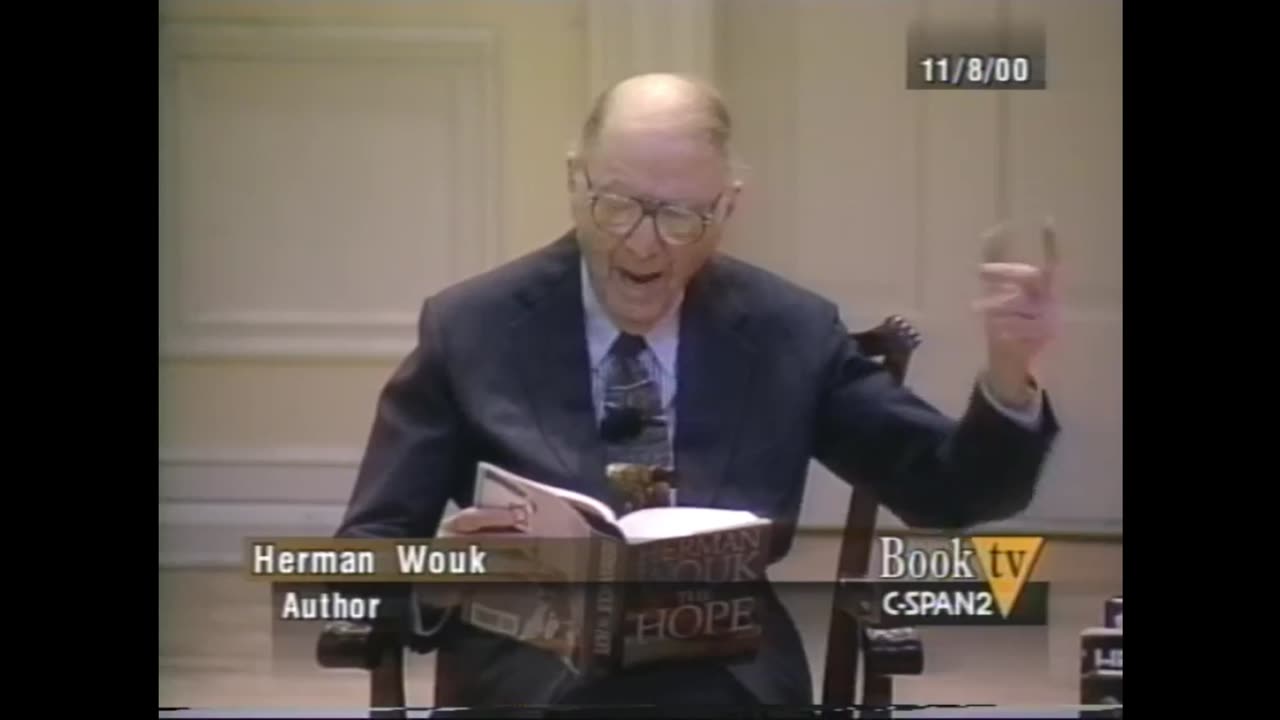
Herman Wouk - Library of Congress 'Living Legend.'
Herman Wouk - Library of Congress 'Living Legend.'
If you are interested in who I am, watch this video.
I helped my father select the excerpts from his works that he read for the Library of Congress that evening.
From Judaism to the Navy, the law, humor and Israel I have strived to live up to the legacies he left me.
I hope you all enjoy his performance as much as the audience did that night. - JW
Herman Wouk Makes His Case
'Living Legend' Looks Back at a Long Career
By CRAIG D'OOGE
Herman Wouk walked out on the stage of the Coolidge Auditorium on the evening of Nov. 8 and sat down. On a small table next to him a line of his books stood at attention, as if waiting for inspection.
Herman Wouk
Herman Wouk - Larica Perry
But they had to wait. First, he had a joke to tell. This was not what one would expect from a Pulitzer Prize-winning author of 11 novels, three plays and two works of nonfiction. But it was entirely in keeping with the man who wrote for radio comedian Fred Allen for five years, a fact Dr. Billington had just noted in introducing him.
The joke was an old one, a kind of humorous story that has long gone out of fashion. It concerned a man who received a slip of paper with his fortune on it when he stepped up to a coin-operated scale in the subway. (The presence of this object alone was enough to date the story). The man reads the fortune to his wife, who is standing nearby. "You are handsome, congenial, intelligent, imaginative and attractive to women," it says. His wife looks at the fortune, looks at the scale and says, "They got the weight wrong too, didn't they?"
The joke was the perfect rejoinder to Dr. Billington's formal introduction, which had traced the highlights of the 85-year old author's long and varied career. It signaled that this was to be a relaxed evening, something Mr. Wouk had characterized earlier as a "ramble through a literary life." And what a life it has been, one so filled with achievement and success that the Library named Mr. Wouk a "Living Legend" as part of its Bicentennial celebration this year.
Born in New York on May 17, 1915, to Russian-Jewish parents who had emigrated from Minsk, Mr. Wouk attended public schools in the Bronx and Columbia University, where he edited the humor magazine, wrote college musicals and obtained his B.A. degree. He wrote for Fred Allen from 1936 to 1941 and joined the Navy after Pearl Harbor. He took part in eight Pacific invasions, earning several battle stars. But he also accomplished something else. During the long months at sea, he began to write. Drawing on his experiences in radio, his first novel, Aurora Dawn, came out in 1947 and it was an immediate success.
At the reading, Mr. Wouk turned to the line of books to his left and drew out a copy of Aurora Dawn, explaining that he wrote it as a sort of homage to Mark Twain. He read a short passage and then returned the book to its place among the other nine or so others arranged next to him. The evening progressed almost like a wine tasting, as Mr. Wouk made his way through the line of books, introducing each one in turn, followed by a sampling that he read for the audience.
The next book he wrote was City Boy (1948), a humorous and partly autobiographic story of a Bronx boy, although he chose to read next from Inside, Outside, a novel that was published in 1985 with the same humorous perspective. The passage he chose concerned the misadventures of his hero, one David Goodkind, who suffers the humiliation of having to carry around a window shade as a stand-in for the Torah.
A passage from Don't Stop the Carnival (1965) followed, a description of a press agent's grim return to a wintry New York City after a sojourn in the Virgin Islands. A sample of Youngblood Hawke (1962) came next, "a long, dense, sad novel," according to Mr. Wouk, but one that helped to prepare him for what he called "the centerpiece of my literary life and the centerpiece of the evening": Winds of War and War and Remembrance. These two books, of almost unimaginable scope, had their origin in the unimaginable horrors of the Holocaust.
Mr. Wouk explained that in order to tell story of the Holocaust, he had to tell the story of World War II. He wanted to show how the "fog of war" provided a screen for the terrible actions of a "rogue nation." The scene he chose to read was set at the Battle of Midway as Pug Henry, the commander of a battle cruiser, wrestles with the personal crisis of watching his own son fly off in a dive bomber against the epic backdrop of the war in the Pacific. The style of writing is extremely visual, practically cinematic. It is easy to see why these novels were adapted for television with such great success.
A short piece of romantic comedy from Marjorie Morningstar provided a transition to the culmination of the evening, a reading from The Caine Mutiny, his Pulitzer Prize-winning novel. Mr. Wouk began writing the book in 1949, while on a reserve officer training cruise. With apologies to Humphrey Bogart, who starred in the movie version, he chose to read a passage dramatizing Captain Queeg's breakdown under cross examination. He read the words with great animation, miming the lawyer's presentation of the assault on Queeg ending with a triumphant "The defense rests!" at which point the author slammed the book shut.
The case for Mr. Wouk's status as a "Living Legend" had been established far beyond a doubt.
Mr. D'Ooge is a public affairs specialist in the Public Affairs Office.
-
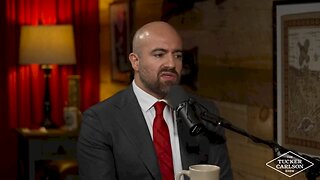 2:10:45
2:10:45
Joseph Wouk's Channel
7 days agoTucker Carlson interviews Mike Benz
1.2K -
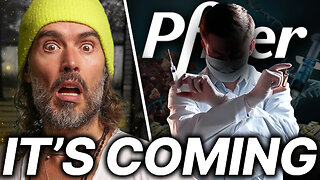 13:35
13:35
Russell Brand
17 hours agoPFIZER JUST MADE THEIR NEXT MOVE AND EXPERTS ARE TERRIFIED
157K318 -
 1:15:57
1:15:57
Victor Davis Hanson Show
1 day agoOver Here, Over There: the Russo-Japanese War and Trumpian Peace Policy
75.9K35 -
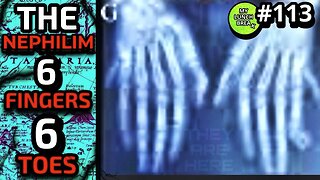 23:55
23:55
MYLUNCHBREAK CHANNEL PAGE
1 day agoThe Nephilim Are Here
100K96 -
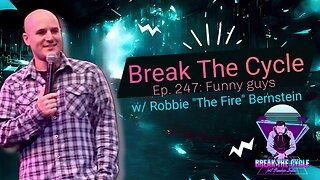 1:00:58
1:00:58
Break The Cycle w/ Joshua Smith
15 hours ago $1.87 earnedBreak The Cycle Ep. 247: Funny Guys w/ Robbie "The Fire" Bernstein
33.1K1 -
 41:26
41:26
TheTapeLibrary
1 day ago $10.42 earnedThe Disturbing Horrors of the Trans-Allegheny Lunatic Asylum
64.2K9 -
 10:07
10:07
Tundra Tactical
15 hours ago $6.95 earnedTRUMP'S HUGE GUN RIGHTS MOVE!
44.6K9 -
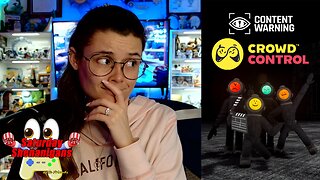 1:53:23
1:53:23
Mally_Mouse
15 hours agoSaturday Shenanigans!! - Crowd Control - Content Warning
33.7K1 -
 17:24
17:24
Exploring With Nug
21 hours ago $3.75 earnedScuba Diving on Underwater Cars Searching For Missing Man!
42.9K1 -
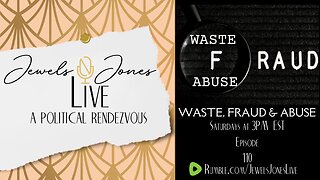 3:06:12
3:06:12
Jewels Jones Live ®
2 days agoWASTE, FRAUD & ABUSE | A Political Rendezvous - Ep. 110
95.8K30